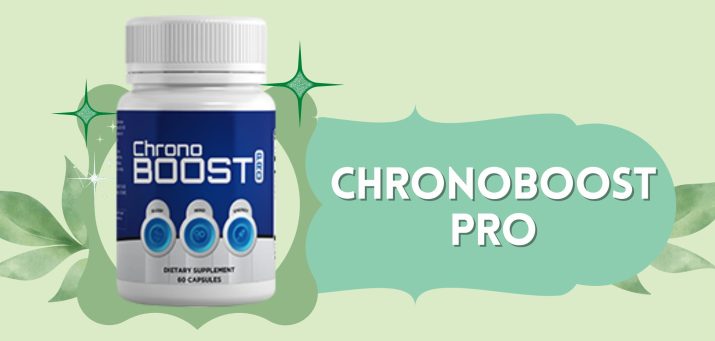Why Am I So Tired? 6 Simple Reasons: Complete Guide 2024
By Vanessa Richards
January 10, 2024 • Fact checked by Dumb Little Man

Ever find yourself asking, “Why am I so tired all the time?” Don’t worry, you’re not alone. Approximately 60% of adults in the US feel the same. Ever since the onset of the COVID19 pandemic, many people claim that they feel exhausted almost all the time. Some blame it on the pandemic, claiming that working from home has disrupted their sleep schedules.
Others blame it on physiological factors, too much screen time, and not having a routine. Regardless of the causes, it’s clear that more people feel fatigued than ever before.
Call it daytime sleepiness or chronic fatigue – these types of feelings are very damaging & frustrating. Exhaustion isn’t evident to others. It’s not something that doctors can test for & measure in a physical exam. But, “pushing through” the exhaustion & frustration is not the answer.
By learning about the information presented in studies, individuals can develop their strategies & tackle their fatigue-related problems. Let’s assess everything science has to say about chronic fatigue and how it can be prevented.
Why Am I So Tired?: What are Tiredness and Fatigue?

In materials science, fatigue is the cumulative weakening effect that ultimately destroys an object or material. Repeated applications of stress can weaken any material. For example, thermal fatigue often causes industry-grade equipment to lose its utility. Similarly, athletes experience muscle fatigue when they exercise too much.
The term “chronic fatigue” is used to describe a similar effect that humans experience both in their bodies & their minds. Small things add up to cause immense stress to the human mind & body. People who experience fatigue are often accused of having naturally low energy levels or no motivation. But, that’s not always the case.
Types of Fatigue
If you’re feeling tired all the time, physically & psychologically – there might be deeper issues at play. Here are three types of fatigue that people typically experience:
Transient Fatigue
People experience this form of acute fatigue when they get bad sleep for 1 to 2 days.
Cumulative Fatigue
This type of fatigue is more intense. It happens when people get inadequate sleep for multiple days over a few months.
Circadian Fatigue
Typically, people with sleep disorders like obstructive sleep apnea experience this type of fatigue at night. The circadian rhythm of someone with such a disorder will go through lows during nighttime.
Categories of Fatigue
People who don’t feel tired all the time but only in certain circumstances categorize this condition in other ways. Their categories include:
Social Fatigue
Feeling tired and unmotivated in social settings. Social fatigue often makes people feel overwhelmed which negatively affects their energy levels.
Emotional Fatigue
Poor sleep quality coupled with sadness, anger, & frustration can cause people to feel emotionally fatigued. Such people are highly prone to depression and other mental health problems.
Physical Fatigue
Joint pain, muscle spasms, and other forms of pain that people experience after engaging in physical activities. Surprisingly, this type of fatigue is the easiest to fix.
Mental Fatigue
People who expend a lot of mental energy throughout the day are likely to experience mental fatigue. Be it exams or personal relationships – any mentally intensive activity can cause this type of fatigue.
When people experience these forms of chronic fatigue for over six months, they’re diagnosed with chronic fatigue syndrome (CFS).
Also known as “Myalgic Encephalomyelitis,” this long-term condition has many symptoms. The most common being extreme tiredness. It can happen to anyone. Patients must exhibit some symptoms for at least six months or longer to be clinically diagnosed with chronic fatigue syndrome.
What are the Symptoms of Chronic Fatigue Syndrome?
Just like having flu-like symptoms doesn’t mean you have the flu, simply feeling tired isn’t enough for getting diagnosed with CFS. Chronic tiredness has many basic symptoms that may or may not indicate chronic fatigue. They include:
| Symptoms of Chronic Tiredness |
|---|
| Sleepiness |
| Headaches |
| Dizziness |
| Sore muscles |
| Low motivation |
| Reduced ability to pay attention to the situation at hand |
| Hallucinations |
| Poor concentration |
| Short-term memory problems |
| Blurry vision |
| Reduced immune system function |
| Appetite loss |
| Unexplained weight gain or loss |
| Impaired hand-to-eye coordination |
| Irritability |
| Impaired decision-making and judgment |
| Slowed reflexes & muscle weakness |
To establish a diagnosis of Chronic Fatigue Syndrome, people must exhibit the following symptoms (in addition to the above-mentioned symptoms) as well:
| Symptoms to Diagnose Chronic Fatigue Syndrome |
|---|
| Impaired memory |
| High blood pressure |
| Inability to get more than 5 to 6 hours of sleep |
| Severe muscle pain and cramps |
| Multi-joint pain (without swelling or redness) |
| Fainting |
| Chest pain |
| Shortness of breath |
| Bleeding (e.g., vomiting blood or rectal bleeding) |
| Severe pelvic, back, or abdominal pain |
| Severe headaches |
| Irregular heartbeat |
| New lumps appearing in the body |
| Fever (greater than 101℉ or 38.3℃). |
| Abnormal vaginal bleeding for females |
| Unexplained pain points all across the body |
| Tender lymph nodes (cervical or axillary) |
Anyone exhibiting four/five of these symptoms for six months or more mustn’t waste any time visiting healthcare professionals. CFS can affect anyone – from children to senior citizens. In the current era, it’s more common in people between the ages of 20 and 40.
What Causes Chronic Fatigue?

There are many potential causes of fatigue. Not getting enough oxygen while sleeping, nutritional deficiencies, pre-existing health conditions, and even certain medications can cause excessive tiredness. Typically, people with CFS use a lot of mental energy. They tend to overthink certain things.
By the time their minds are thought, there’s the inevitable crash and they feel fatigued. These people may not have chronic illnesses. So, understanding this type of fatigue is rather difficult for them. This is further complicated by the fact that we’re all prone to overthinking at different points in our lives.
This type of mental fatigue occurs in normal, healthy people all the time. It’s a normal response to mental or physical exertion. But, “normal” fatigue becomes “abnormal” or “chronic” when its effects are prolonged. For example, the lack of restful sleep for a few days will depreciate the quality of blood flow your brain receives.
If you drink too much caffeine in such circumstances, the prolonged period of mental exertion will make you feel fatigued. This fatigue is a normal response to your temporary lifestyle.
But, if it lasts more than a few days, (more than 48 to 72 hours), it can become abnormal or chronic.
In a recent survey, thousands of people with no medical history of insomnia, sleep apnea, and other sleep-related conditions were asked about the energy-depleting activities in their life.
Most of their symptoms can be traced back to poor habits, routines, & sedentary lifestyles.
6 Main Lifestyle Factors that Contribute to Fatigue and Tiredness
- Excessive alcohol or drug use
- Engaging in intense physical or mental activities unchecked for long periods
- Irregular Exercise
- Not getting enough sleep daily
- No strict rules regarding the use of technology in bed
- Unhealthy diet & not eating food on time
If these lifestyle choices are causing you to sleep problems and fatigue, take an honest inventory of them. Addressing these mistakes is the first step toward relief. Fatigue may also be related to an underlying health condition.
Taking certain over-the-counter medications to address certain health conditions may also cause fatigue. For example, unrelenting exhaustion is a common side-effect of taking blood pressure medications for the first time.
Here are some other conditions that are commonly related to fatigue:
- Acute liver failure
- Iron deficiency or Anemia
- Depression & anxiety disorders
- Cancer
- Chronic infections
- Hyperthyroidism (Thyroid hormone deficiency where too many thyroid hormones are produced in the body)
- Hypothyroidism (when the underactive thyroid gland fails to produce enough thyroid hormone)
- Chronic inflammation
- Chronic kidney disease
- Severe nutritional deficiencies (e.g., severe vitamin D deficiency can cause osteoporosis & fatigue)
- Chronic Obstructive Pulmonary Disease (COPD)
Consuming heavy medications, such as those used during chemotherapy or to treat heart disease can also cause severe fatigue. But, the doctors who administer these drugs let their patients know about these fatigue-related risks.
A fatigued body and mind are extra prone to sicknesses. People who feel tired all the time generally have weakened immune systems. So, seeking proper treatment from medical professionals is a must for anyone with these underlying health conditions.
Treating & Preventing Chronic Fatigue
The prognosis for fatigue is surprisingly good. There are both prescription and non-prescription drugs & supplements in the market that can help treat chronic fatigue syndrome. There are several natural remedies for patients to try out as well.
More importantly, physical and mental fatigue prevention is an easily achievable task. In most cases, preventing the underlying cause instantly prevents symptoms of fatigue from getting stronger. Here are some valuable fatigue prevention techniques.
Natural Remedies
Manage day-to-day stress by practicing mind & body relaxation techniques.
Exercise
Exercising regularly as per your body’s fitness levels. Set a fixed time to exercise. Make a habit of exercising every day at that fixed time.
Proper Medication
Ask your health care practitioners or pharmacist about the medications you’re consuming and their potential side effects.
Improve your diet
Add more fruits and vegetables to your diet. Always start the day with a heavy breakfast. Consume as much whole grain, leafy greens, milk, and other sources of vitamins & proteins as possible.
Avoid too much caffeine
Avoid consuming too much caffeine. Cut out coffee, chocolate, chewing gum, and energy drinks that contain large amounts of caffeine from your diet. If you do drink a few cups of coffee, tea, or other caffeinated drinks, don’t drink them after 5 pm.
Stop smoking
Avoid smoking & drinking alcohol, especially after dinner. The use of nicotine and alcohol within four to five hours of bedtime leads to poor sleep quality.
Be intimate with your partner
Engage in physical intimacy with your partner as frequently as possible, especially right before going to sleep.
Get enough sleep
Get a good night's sleep by going to bed at a fixed time every night.
Anyone can reduce the symptoms of fatigue by taking these steps. Even those with underlying medical conditions. Of course, people with serious medical conditions like COPD or diabetes must work with healthcare professionals to optimize their treatments.
For example, if taking certain medications is causing you fatigue, your doctor should remove these drugs from your treatment plans. Treatment of fatigue depends solely upon the factors causing this problem.
Vitamins
Fortunately, not all fatigue treatment procedures involve prescription drugs. There are many vitamins, minerals, and all-natural supplements that can fix fatigue without getting the patients addicted (unlike caffeine-based products). Here are some of them:
Vitamin B12
Vitamin B12 plays two major roles in the body. It helps form red blood cells that transport blood & oxygen throughout the body. It also supports various neurological functions in the brain. According to theNational Institute of Health, people with vitamin B12 deficiency face greater risks of fatigue & physical/mental weakness. Cooked clams, steamed mussels, & cooked salmon are some of the best natural sources of vitamin B12.
Magnesium
Responsible for 300+ different biochemical reactions in the body, Magnesium is an essential mineral. From nerve function to energy production to blood glucose control – this mineral facilitates many key functions in the body. People with magnesium deficiencies are likelier to experience fatigue & sleep problems. Leafy green veggies (e.g., kale, okra, etc.) nuts, dry beans, & whole grains are all good natural sources of Magnesium.
Calcium
Calcium facilitates the production of melatonin in the body. Melatonin is the ingredient that keeps the body in a calm state so that people can stay asleep for longer. Milk, cheese, and drinks with added calcium are good natural sources of calcium.
While these natural vitamins and minerals are great for treating fatigue, they can also be hard to access. For example, most vegans are inherently low on vitamin B12 because this vitamin is only found in animal products.
Supplements
Similarly, finding & consuming calcium or magnesium-rich products regularly isn’t feasible for many people. That’s where supplements can be of immense help. Here are some of the best all-natural supplements for treating fatigue & improving your energy levels:
1. Best Energy Supplement for Fighting Chronic Fatigue: ChronoBoost Pro
ChronoBoost Pro is a dietary supplement that comes packed with 18+ rare herbs and minerals. People who use ChronoBoost Pro regularly essentially detox their brains from many harmful neurochemicals. The supplement switches on your intrinsic ability to sleep well. The ingredients in ChronoBoost Pro also provide users with a clearer mind and higher energy levels.
They include:
- Inositol
- L-Theanine
- L-Taurine
- Magnesium
- GABA (a neurotransmitter)
- L-tryptophan
- Chamomile
- Lemon Balm
All these ingredients promote sleep & relaxation. For example, calcium & the amino acid 5-HTP increases melatonin production in the body. More melatonin in your body means high-quality sleep is almost guaranteed every night.
Overall, ChronoBoost Pro is a very effective supplement. It contains most of the active ingredients needed to fix the neurological roots of fatigue & sleep-related problems.
It flushes out all the toxins in the brain & replaces them with sleep-inducing ingredients like Magnesium, Chamomile, etc.
Shop Chronoboost Pro Supplement at the Official Website.
Full Article: ChronoBoost Pro Reviews 2024: Does it Really Work?
2. Best Energy Supplement That Contains Super-Foods: Up N Go Energy
Up N Go Energy is another popular supplement for treating fatigue. It contains “spirulina” – a superfood that became famous for being used by NASA astronauts in space. This nutrient offers more protein than most veggies & meat products.
Up N Go Energy also contains the following energy and immunity-boosting ingredients –
- Vitamin B12
- Beta carotene
- Antioxidants
- Gamma linoleic acid
- Rhamnose
- Glycogen
Overall, this all-nature supplement gives users all the nutrients they need to maintain sustained energy levels throughout the day.
Shop Up N Go Energy Supplement at the Official Website.
Full Article: Up-N-Go Reviews 2022: Does it Really Work?
3. Supports Everyday Energy Levels: Energy Complex

Energy Complex is a dietary supplement designed to replace energy drinks. Drinking caffeine & sugar-rich energy drinks isn’t good for your health. Consuming these all-natural, easy-to-swallow, dietary pills is a much better option. Energy Complex also contains:
- Acai Fruit
- Caffeine Anhydrous
- Thiamin
- Riboflavin
- Niacin
- Vitamin B-6
- Vitamin B-12
- Biotin
- Magnesium
- Taurine
- Spirulina algae powder
The benefits of consuming the Energy Complex supplement include – improved cellular energy levels, mental clarity, and improved cognitive functions.
Shop Energy Complex Supplement at the Official Website.
Full Article: Energy Complex Review: Does it Really Work?
Conclusion
Fatigue is no joke. It’s a serious health condition that can negatively affect all aspects of your life. People suffering from this physical and mental condition must seek medical help & make the necessary lifestyle changes.
Athletes, business leaders, and celebrities have all reportedly benefitted from using Chrono Boost Pro. Getting a fitter mind and enhanced strength and vitality is relatively easy with this Non-GMO, vegan-friendly supplement.
Regular consumption of ChronoBoost Pro will help you sleep better and feel more aware during the day. The daily flow of natural ingredients like L-Taurine, Inositol, & L-Theanine into your brain’s chemicals will prevent sleep deficiency. Ingredients like Magnesium will also regulate your sleep-wake cycles and keep your mind calm when you’re awake.
Your ChronoBoost Pro pills will regulate your sleep cycles and make your mind sharper & more aware. This supplement has hundreds of thousands of users across the world. They’re some of the best anti-fatigue tools on the market today. Anyone dealing with fatigue must consider giving this safe & natural solution a try.
Click here to get Chronoboost Pro Supplement at a Discounted Price.
Why am I so tired FAQs
Why do I feel like I have no energy?
People feel they have no energy for many reasons. Not getting enough sleep, nutritional deficiencies, mental/physical stress, and medical conditions like diabetes, arthritis, etc., are all potential causes.
Why am I so exhausted all of a sudden?
Fatigue and exhaustion are caused by two main factors – lifestyle-related issues & medical conditions. Both need to be assessed and addressed with the help of medical professionals.
What are the 3 types of fatigue?
Transient, circadian, & cumulative.
Why do I feel tired all the time?
You’re probably suffering from chronic fatigue syndrome – a condition that can be caused by medical conditions or lifestyle-related mistakes. Speak with medical professionals to determine the exact cause behind you feeling tired all the time.
Vanessa Richards
Vanessa is a mom of 3 lovely children and a software geek. Outside of her career as a health and wellness instructor. She enjoys writing and researching on topics such as finance, software, health and culinary.




